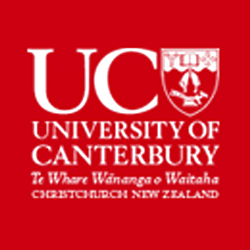
Developing Research Supervision Skills
Status
Completed: 6 December 2008
Project Details
A project completed in 2008, undertaken by University of Canterbury, to investigate current practices in research supervision education, with regard to students undertaking research projects, at a variety of qualification levels across a range of different tertiary institutions within the Aotearoa New Zealand context.
Aims:
The main aims of the project were to:
- identify existing resources and professional development activities that are available at universities, polytechnics, wānanga and relevant private training establishments
- provide baseline data and networking opportunities for future projects
- generate tentative practical recommendations to assist tertiary institutions and their staff in developing effective research supervision training.
Methodology:
The project methodology involved:
- a national online survey of research supervisor professional development across the tertiary sector
- qualitative case studies of five tertiary institutions
- interviews with key staff members at the institutions
- narrative and thematic analysis of data to assist with the development of a model of research practice that takes into account different levels of study.
Team

Dr Jean Rath
University of CanterburyStatus
Funding
$10,000.00 (excl GST)
Key Findings
The key findings from the project included:
- The case studies highlighted the diverse institutional policies and practices in relation to supervisors’ professional development. Only the university had a formalised training programme for supervisors. Other institutions relied on wider, system-based, initiatives that focussed on staff research and/or teaching capabilities.
- Few supervisors had undertaken formal supervisor training, however, they had access to a range of skills, experiences, resources and nonsupervisory formal professional development opportunities.
- An inductive analysis of the interview data identified five main themes in supervisors’ narratives: memories of supervision, supervision as teaching, transferring skills, personal attributes and learning from colleagues.
- The results highlight the range of institutional approaches to supervisor professional development and the major themes of the complex narratives that supervisors employ to make sense of their experience. One outcome has been to raise awareness of supervisor professional development across a range of tertiary organisations. It is hoped that this will enhance future networking between staff developers who prepare staff to supervise student research at a variety of qualification levels.
Key Recommendations
The key recommendations and implications for supervisor professional development from the project included:
Supervision professional development | Supervision should be recognised as a space for crafting (and re-crafting) scholarly identities for both students and supervisors. Professional development should encourage challenging reflective practices to acknowledge and build upon the knowledge and life experiences of supervisors with regard to their prior professional and personal experiences.
Tertiary teaching qualifications | Many supervisors develop their skills by evolving and expanding upon other teaching duties. Institutions can enhance this process by acknowledging pre-existing skills and by developing tertiary teaching qualifications that include supervision as a specialist pedagogy.
Professional development models | Professional development models should seek to facilitate a process that honours the supervisory relationship as requiring not only competent individual supervisors, but also a supportive community of academics, other staff and students.
Professional development responsibilities | Devolution of professional development responsibilities to Faculty or School level allows for the development of discipline specific supervisory pedagogies. Such developments must be coupled with effective communications between all units concerned with teaching and research development.
Research-teaching nexus | Staff need to be well-prepared to supervise small research projects, this strengthens the research-teaching nexus at pre-degree and undergraduate level, provides a stimulus for community and industry engagement, and impetus to postgraduate programmes.
Web-based resources | Web-based resources are rapidly becoming a key vehicle to facilitate professional learning networks and encourage community-building. Their emergence is important in developing inclusive ways to work with students and/or supervisors at a distance across global academic and practitioner communities.
Future research | The research project was a scoping exercise. Future more in-depth research is required that adopts longitudinal, multi-dimensional, multi-method approaches to help develop credible models of how professional development affects the structure, acquisition, application and retention of supervisor knowledge, and how this influences students’ experiences and outcomes. The role of supervisors remains crucial in ensuring that students complete their education in a timely manner and gain enriched abilities with regard to research skills, scholarly endeavour and academic identities.
A research report prepared by Jean Rath.
(PDF, 276 KB, 45-pages).
- 2 December 2008